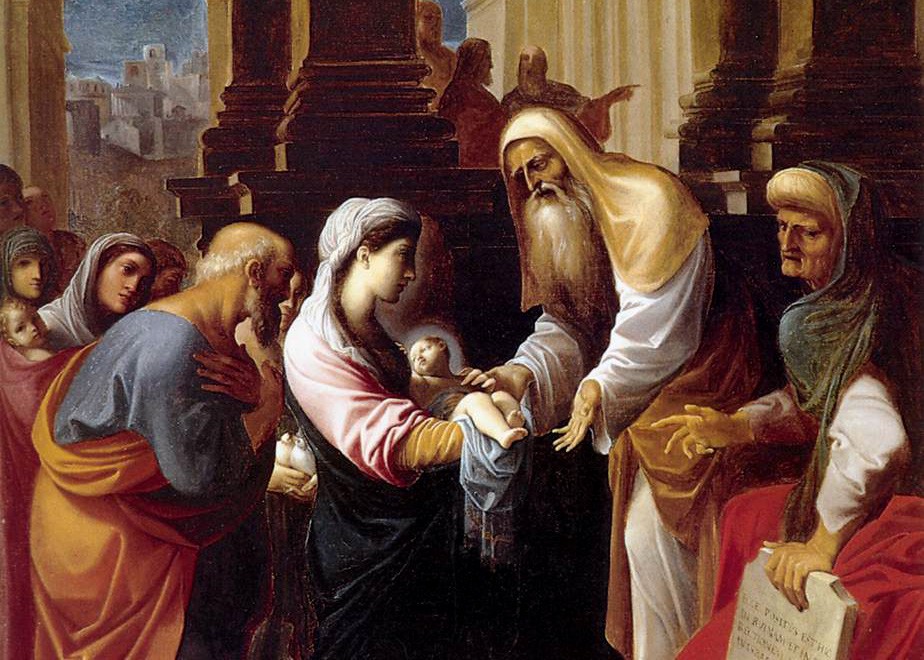
Reflection for the Feast of the Presentation of the Lord
The act of one’s presentation before society is not a glamorous ritual intended only for “photographs and memories,” but a meaningful ceremony of responsible self-offering directed towards a responsible service.
Debuts for example, are presentations that should not be judged according to the amount of money lavished upon its production, but upon an effective act of commitment of a maturing woman to the problems and concerns of her community.
In today’s readings, we witness the obedience of the parents of Jesus in following the prescriptions of the religious traditions in their time, requiring the presentation and circumcision of the first-born son, who “belongs” to God in offering for and remembrance of their liberation from Egyptian bondage.
But through the lens of our Christian faith, we see in this undramatic event of a poor Jewish family’s devout compliance to the statutes of their religion, the presentation of our Lord as foretold in the prophecy of Malachi – the coming into our present-day dystopian temples of a mysterious “king of glory” who is destined to prepare the path for the kingdom of God.
No human can resist nor evade from our Lord’s coming, but no human can encounter it without being inspired to change for the better: our Lord’s presentation in our midst is as benevolent as it is awesome. His arrival – the day and hour of which we do not know – is feared by those who choose to persist in the conduct of unjust oppression, and is welcomed by those who choose to be purified and taught in the way of unconditional charity. It is a coming intended to initiate the service of each and everyone of us for the kingdom, that we may continue what our Lord started – the mission of healing a world of hurt.
But like debuts, circumcisions and other curious rites of passage held to commemorate social initiation, our Lord’s presentation carries a much deeper significance. It signals the beginning of a life dedicated and preconfigured in a complex process of “immersion, empowerment and redemption”: our Lord is presented before us by Abba to share in the burden of our human condition, in order to be made worthy to redeem as well as strengthen us in a collaborative effort to alleviate the same condition, so that we ourselves are made worthy to be presented by him before his Father in heaven.
Our Lord has been given to us, not to dominate through repressive hegemonies, but to slowly immerse himself in the reality of our irreverent worship and selfish ways, and to eventually undergo the seemingly unavoidable power of evil and death. It is through our Lord’s compassionate solidarity with us in the misery of our sinfulness, that he becomes empowered to overcome it and to help us by his exhortation and example, in lifting ourselves from it. The “king of glory” allowed himself to be offered to us – a perfectly holy person amidst an unholy and ungrateful multitude – so that through his sufferings, he in turn can transform us and offer us to the redemptive compassion of the Spirit.
How then, do we serve our basic ecclesial communities? Through a “We know much more than you …” attitude – through dominance and control? Or through a “They know much more than we do … “ mindset – through immersion, empowerment and participative social action? Which is more appropriate for our service for the kingdom – pride and self-righteousness, or humility and sacrifice?
Indeed, Simeon’s divinely inspired Nunc Dimitis having recognized both the one being consecrated as the one who will later consecrate, is a sublime prayer of joy over the advent of salvation and peace for all the nations. But it is also a hymn of sorrow over the inevitable loneliness of a prophet’s life of ministry; though a prophet is never abandoned by God, it is only consoled through the gloriousness of its end.
Prophets are predestined to bring about wrath and relief – anger to those who will be disturbed in their desire to continue in sin, and happiness to those who will be liberated from them. Prophets are also predestined to grief and rejection, affecting even their families and loved ones.
Such a high cost of suffering must be incurred in the pursuit of the way of Christ. The kingdom of God will thrive on a kind of peace that only Jesus can bring, that only his committed disciples can accomplish: a peace that can only be realized after vigorously shaking so many deceptive hearts and minds, and courageously revealing what must be revealed.
Brother Jess Matias is a professed brother of the Secular Franciscan Order. He serves as minister of the St. Pio of Pietrelcina Fraternity at St. Francis of Assisi Parish in Mandaluyong City, coordinator of the Padre Pio Prayer Groups of the Capuchins in the Philippines and prison counselor and catechist for the Bureau of Jail Management and Penology.
The views expressed in this article are the opinions of the author and do not necessarily reflect the editorial stance of LiCAS.news.
Source: Licas Philippines
0 Comments